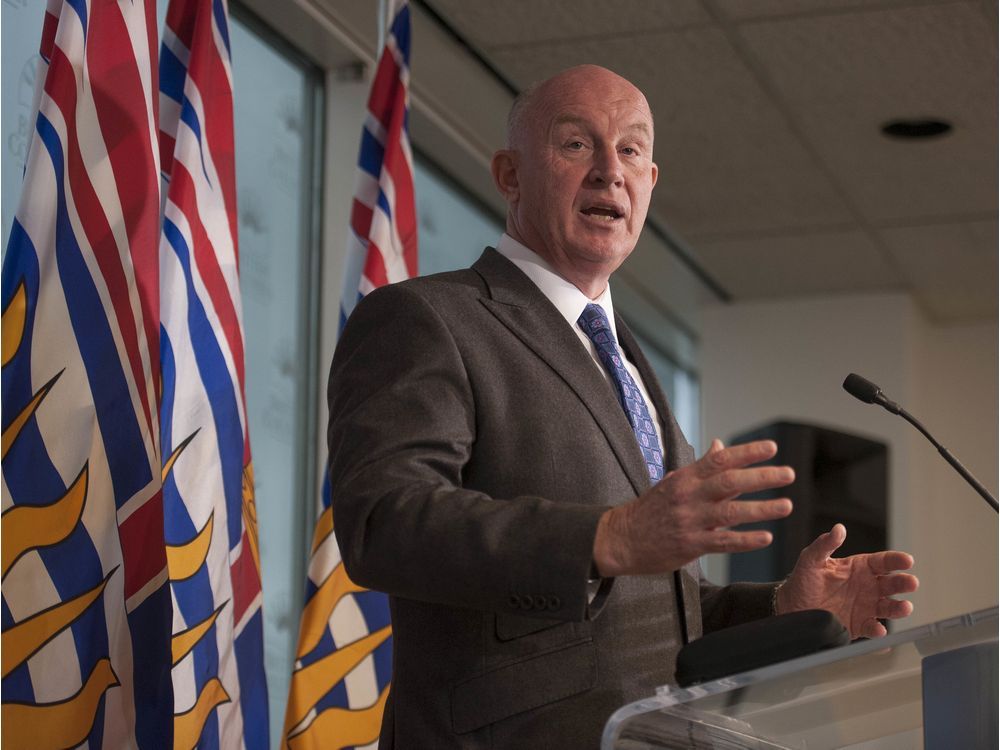Mayors should not be discipline authority for police chiefs: new B.C. MLA report

Credit to Author: Rob Shaw| Date: Tue, 26 Nov 2019 01:33:03 +0000
VICTORIA — Mayors should not be in charge of disciplining municipal police chiefs accused of wrongdoing, because of perceptions of conflict, an all-party committee of MLAs recommended in a new report Monday.
The committee reviewing B.C.’s Police Act concluded it would be fairer for a retired judge to be the discipline authority for a chief or deputy chief.
“Members agreed that, in the interest of transparency, a retired judge should be defined as the discipline authority of the chief or deputy chief, and that any information or reports arising from such an investigation be made available to all the board members, rather than just the board chair,” read the report, tabled in the legislature by NDP, Liberal and Green MLAs.
The suggestion comes after high-profile cases of mayors bungling investigations into the chiefs they help hire, most recently in 2015 in Victoria where the mayoral co-chairs botched an investigation into then-chief Frank Elsner.
The mayors of Esquimalt and Victoria at first concluded Elsner could keep his job after allegations of inappropriate text messages with the wife of one of his officers. The independent police complaint commissioner later recommended his firing and criticized the mayors for their work. Elsner resigned, but the case took years and accumulated significant legal fees.
“We have to make sure there’s not even a hint of bias, and by going to retired judges to perform this function on behalf of mayors it removes them from that possibility,” said Mike Morris, the Liberal deputy chair of the committee and a former RCMP inspector.
“Some locations could have close relations between mayors and their police chiefs and this removes them from that rather difficult position we’ve seen in Victoria and others.”
Police Complaint Commissioner Clayton Pecknold said Monday he is pleased at the change.
“I think it’s a good idea,” he said. “The reality is these discipline proceedings are highly complex, and they can take a considerable amount of time and resources, and mayors have many other duties so why not put it in the hands of retired judges so it’s a fair adjudication and ensure there’s a full public accounting of things.”
Critics have long warned that there’s an inherent conflict in having mayors determine discipline for police chiefs, given how closely the two roles work together and how involved mayors are in the process of hiring the chiefs. In the past, there has also been concerned that mayors could or would not share disciplinary reports into chiefs with the rest of the police board.
The recommendation is one of 38 made by the all-party legislative committee, which heard testimony from chiefs, police officers, police boards, community groups and other interested parties.
It will ultimately be up to Solicitor-General Mike Farnworth whether to put the changes into law.
“I’ll review the report with great interest, as will my ministry staff,” Farnworth said in a statement Monday.
MLAs also suggested the independent police complaints commissioner be allowed to conduct public hearings into cases of police misconduct at any point he deems necessary, rather than waiting in some cases years for the entire disciplinary process, appeals and judicial challenges to conclude.
“There are some matters in the public eye very early, very much of public concern and can be very serious,” said Pecknold. “In those cases … the public interest sometimes demands there be an early calling of a public hearing before waiting months or in some cases years.”
The committee recommended Pecknold’s office be given powers to pro-actively launch “systemic reviews” of police departments, if the commissioner sees trends involving certain types of allegations or officers. The commissioner should also be allowed to issue binding guidelines on departments to speed up the process, concluded MLAs.
Several other recommendations included efforts to make the police complaints process more accessible for diverse ethnic and cultural groups, as well as aboriginal communities.